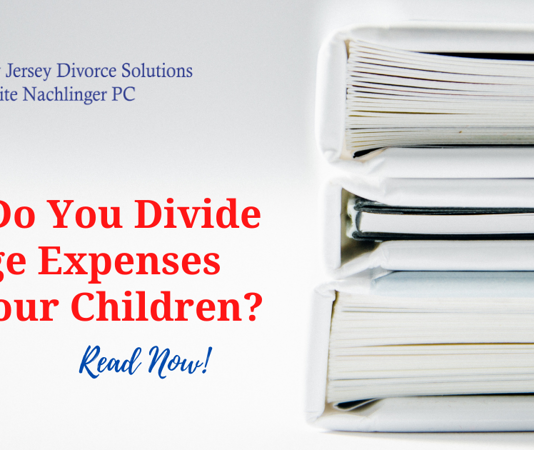How do you divide college expenses for your children?

If your kids are a senior in high school and:
- You know what your financial circumstances are.
- You know what your spouse’s financial circumstances are.
- You’re getting a divorce.
- You know how much each of you is going to have in terms of assets and liabilities.
- And you know what everyone’s income is.
Then you can go ahead and decide exactly how you’re splitting college debt. There’s no point in six months relitigating. You might as well go ahead and figure it out then.
But what if it’s a little bit earlier? Your child is a freshman in high school, and you want to address college. And let’s say you’re the spouse that has more money, should you want to put college contribution into a settlement agreement?
If you agree in your agreement to pay for something, then you are probably not going to be able to wiggle out of that later, even if the law changes. If you would like to take advantage of the change in the law, you probably should not put a provision where you agree to pay.
However, for that person, it may be that you indicate that you will pay in accordance with the law at the time your child goes to college. That means, if the law does change and you don’t have an obligation according to the law, then that’s what would apply. We have raised this issue with many parents that we call “The Advantaged Spouse,” and every one of them has said: “I want to pay for my child’s college.” These parents are comfortable putting it in the agreement, and that is okay.
We have also seen situations where the person making more money has gotten the person making a lot less to agree to split college equally. However, if it is too far off in the future, even two years from now, we do not advise putting a proportion in your agreement, even if it’s 50-50, because there’s too much that could change. What if you lose your job and you are struggling, and you end up living off of assets, and you can no longer pay fifty percent? You are stuck with it.
We see more typically that there will be a provision that the child will apply for all forms of financial aid. This includes guaranteed student loans, or whatever is available. Everything else after the financial aid has been applied is what the parents have to divide.
To answer the question concerning how you address college expenses, you can be as specific as possible. Still, it depends on your circumstances or just indicated very broadly that you’ll determine the issue at the time. The critical point is that you need to talk with your attorney at the time and determine it is in your best interests. More importantly, is it in your child’s best interest to address this in a more specific way or maybe even leave it out entirely?
If you need help trying to figure out any aspect of this process and how any of these suggestions apply to you, call us at 732-384-1514 for a consultation. We’re here to help. Remember, we won’t tell you what you want to hear….We tell you what you need to know!



